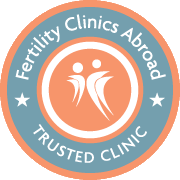5 Factors that may influence the fertility of couples
by Chrysa Karakosta, last updated 04 Jun 2015,
2 min read
It is well known that environmental parameters and lifestyle have a big impact on fertility. 5 factors that have been studied and influence the fertility of couples are...
1. Smoking
Smoking in women is known to increase the chances of ovarian dysfunction and has been reported to cause a delay in conception of more than 1 year. In men smoking affects erectile function and increases the chromosomal abnormalities in the sperm produced, leading to increased miscarriages. Stopping smoking just for three months leads to improved sperm quality.
Specifically in assisted reproduction technology treatment cycles, smoking leads to a reduction in over 40% in their chances of a successful outcome. In women we obtain lower numbers of eggs and hence embryos.
2. Alcohol
Alcohol consumption in both men and women seems to affect fertility. In women, moderate consumption (above two glasses of wine per day) increases conception time and some studies have also shown reduced embryo quality. In men, it has been proven that sperm quality is affected negatively even with modest habitual alcohol consumption (5 units per week).
3. Medications
Many types of medications have been associated with infertility. Treatments for neuropsychiatric disease (antidepressants), anti-hypertensives, radiotherapy and chemotherapy are some of the types of medications that have been documented to negatively affect fertility. Specific medications taken by anyone trying to conceive should be discussed thoroughly with your treating doctor.
4. Mobile phone use
There have been studies which suggest that mobile phone use affects in men both motility and morphology in sperm parameters and also increases oxidative stress. However, further studies are required to assess the correlation between duration of use and the effect on sperm parameters. Similarly further studies should be performed to evaluate all new technologies (laptops, tablets etc) and their impact on fertility.
5. Environmental Exposure
Exposure to lead, cadmium, pesticides and solvents have been reported to affect fertility in both men and women.
In couples trying to conceive a thorough medical history including the detection of possible environmental and lifestyle factors may assist us in achieving a pregnancy without having to have any assisted reproduction treatments. In those that do eventually need to have infertility treatments the elimination of such unfavorable lifestyle or toxic factors may lead to higher success rates.
Source: Alvarez S. Do some addictions interfere with fertility? Fertil Steril 2015; 103: 22-26

Chrysa Karakosta, BSc, MSc
Chrysa is the Lab co-Director at Newlife IVF Greece, in Thessaloniki Greece, from the beginning of 2010 and now heads the International Patient Department.










